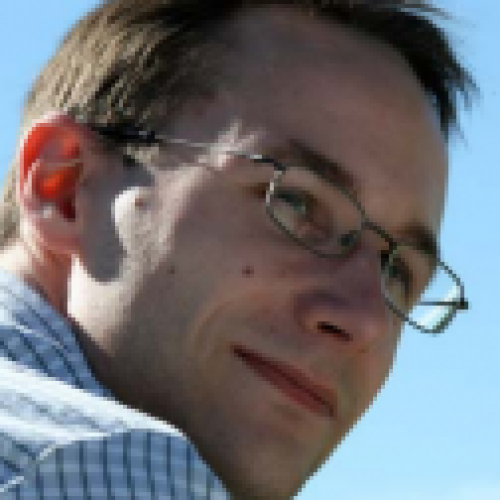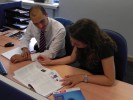 I joined the RSC in 2016 after working as a postdoctoral researcher for a few years. By that point I’d settled in to lab work – if computational chemistry counts as lab work – but saw the Publishing Editor role as a great way to apply my broad scientific interests and the skills I’d picked up helping to improve drafts of papers.
I joined the RSC in 2016 after working as a postdoctoral researcher for a few years. By that point I’d settled in to lab work – if computational chemistry counts as lab work – but saw the Publishing Editor role as a great way to apply my broad scientific interests and the skills I’d picked up helping to improve drafts of papers.
This year, in addition to working on my usual journals I’ve been coordinating a Faraday Discussion. This has been a particularly interesting challenge.
The
Faraday Discussion is a
hybrid of a conference and a special journal issue which calls for a lot of editorial work. Due to the
unusual format of the meeting, papers have to be received and edited on a strict deadline, and the conference discussion itself has to be honed into a final written volume. That means a lot of deadlines, editing and production work running in parallel, coordinating with many researchers at once as you make sure their manuscripts are in on time and that you haven’t changed the meaning of an important scientific point trying to fix a typo.
Although a Faraday Discussion is a lot of work, it’s interesting to be in a spectator role at a conference. Working as an editor is a great way to broaden your scientific horizons as you need to be able to put all sorts of papers in some sort of context. A Faraday meeting takes a particular subject – Surface Enhanced Raman Scattering in my case – and lets you focus on it for several months. Editing the papers means you pick up a sense of the major controversies and unanswered questions in that field, and then you have a ring-side seat to the debates that try to push the field forward at the meeting itself.
A side benefit of the Faraday Discussion meeting is that you get to travel. My meeting was in Glasgow, which meant I was able to enjoy one of my favourite Scottish delicacies – deep fried pizza, which Cambridge chip shops inexplicably haven’t adopted.
Alex is a Publishing Editor working in the Royal Society of Chemistry's Publishing Department. To see if there are any current vacancies go to 'RSC: Latest Vacancies' Blog or subscribe to 'RSC: Latest Vacancies' by Email

